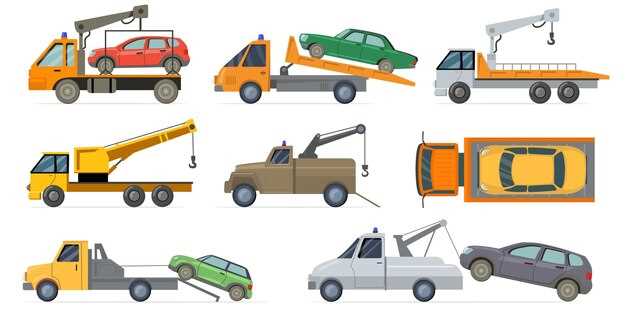
Towing a trailer should be an effortless experience, allowing you to transport your belongings with ease. Lightweight trailers have emerged as a popular choice for those who seek convenience without sacrificing functionality. These trailers are designed to be towed by a variety of vehicles, making them accessible for both novice and seasoned users alike.
The primary advantage of lightweight trailers lies in their minimal weight, which not only makes them easier to tow but also enhances fuel efficiency. With an easy setup and streamlined design, these trailers can be quickly hooked up and ready to go, allowing you to focus on your journey rather than the logistics of towing.
In today’s fast-paced world, simplicity is key. Lightweight trailers provide a practical solution for individuals and families who want to embark on adventures without the hassle of cumbersome towing. Whether you’re heading out for a weekend camping trip or simply need a reliable way to transport goods, these trailers assure a smooth and convenient towing experience.
Choosing the Right Lightweight Trailer for Your Vehicle

Selecting the appropriate lightweight trailer is essential for ensuring safe and convenient towing. Start by determining your vehicle’s towing capacity, as this measurement dictates the maximum weight your vehicle can safely tow, including the trailer itself and any cargo it carries.
Next, consider the dimensions of the lightweight trailer. Ensure that it fits your vehicle’s towing capabilities while also meeting your personal requirements. Take into account the length, height, and width of the trailer to ensure it is compatible with your vehicle.
Evaluate the type of lightweight trailer you need based on your intended use. Options include utility trailers for transporting goods, motorcycle trailers, or campers for weekend getaways. Each type is designed for different purposes, so choose one that aligns with your lifestyle and needs.
Look for features that improve towing convenience, such as an adjustable hitch and built-in brakes. These features enhance safety and make the towing experience more manageable, particularly when handling heavier loads or navigating hilly terrain.
Lastly, review the materials and construction of the lightweight trailer. Aluminum trailers are often favored for their durability and resistance to rust, while fiberglass models can offer a lightweight alternative with added insulation. Always prioritize quality to ensure the trailer lasts and performs effectively over time.
Essential Features to Look for in Easy Tow Trailers
When selecting an easy tow trailer, several essential features can significantly enhance your towing experience. First and foremost, consider the weight of the trailer. Lightweight trailers are ideal as they are easier to tow, facilitating smoother handling and better fuel efficiency. Look for models specifically designed to minimize weight without compromising durability.
Another crucial feature is the trailer’s coupling system. A reliable and straightforward coupling mechanism allows for quick and hassle-free attachment to your vehicle. Many lightweight trailers come equipped with adjustable couplings that can accommodate various vehicle heights, ensuring a proper fit and enhanced stability during towing.
Additionally, check for the presence of brake systems. Some lightweight trailers come with electric brakes that improve safety and control when towing, especially on inclines or during heavy braking scenarios. Ensuring that the trailer has a reliable braking system is key for easy towing.
Storage capacity is also an important feature to review. Look for trailers with smart storage solutions that maximize space without adding significant weight. This can include features like foldable sides, built-in organizers, or detachable components that can be stored away when not in use.
Lastly, don’t overlook the trailer’s compatibility with your towing vehicle. An easy tow trailer should be compatible with a range of vehicles, ensuring that you can use it with whatever car or truck you own. Check the towing capacity of your vehicle and match it with the specifications of the trailer for a seamless towing experience.
Tips for Safe and Effortless Towing with Lightweight Trailers

Towing a lightweight trailer can be a straightforward experience if you follow certain guidelines. First, ensure your towing vehicle is rated to handle the weight of the trailer. Consult your owner’s manual for the towing capacity to avoid potential issues on the road.
Next, always check the trailer before each trip. Inspect tire pressure, brakes, and lights to ensure all components are functioning correctly. Proper maintenance of both the trailer and the towing vehicle contributes to a safer journey.
When connecting the trailer, make sure it is securely attached to the hitch. Use safety chains in addition to the primary coupling to provide an extra layer of safety. Ensure that the chains are crossed under the hitch to prevent the trailer from dropping to the ground in case of disconnection.
Distribution of weight within the trailer is essential for maintaining stability. Load heavier items towards the front, but avoid overloading the tongue weight. A well-balanced trailer makes towing easy and reduces the risk of swaying, especially at high speeds.
Practice driving with your trailer in a safe environment before hitting the road. Familiarize yourself with the trailer’s dimensions, including width and height, which can affect your maneuverability during turns and when passing under overpasses.
Always adjust your driving habits when towing a trailer. Allow for additional stopping distance and make wider turns to accommodate the trailer’s length. Keep a steady speed, especially on inclines and declines, to maintain control.
Lastly, remember to observe proper trailering etiquette. Use turn signals well in advance, keep your speed consistent, and be courteous to other drivers. Being considerate fosters a safer environment for everyone on the road.





